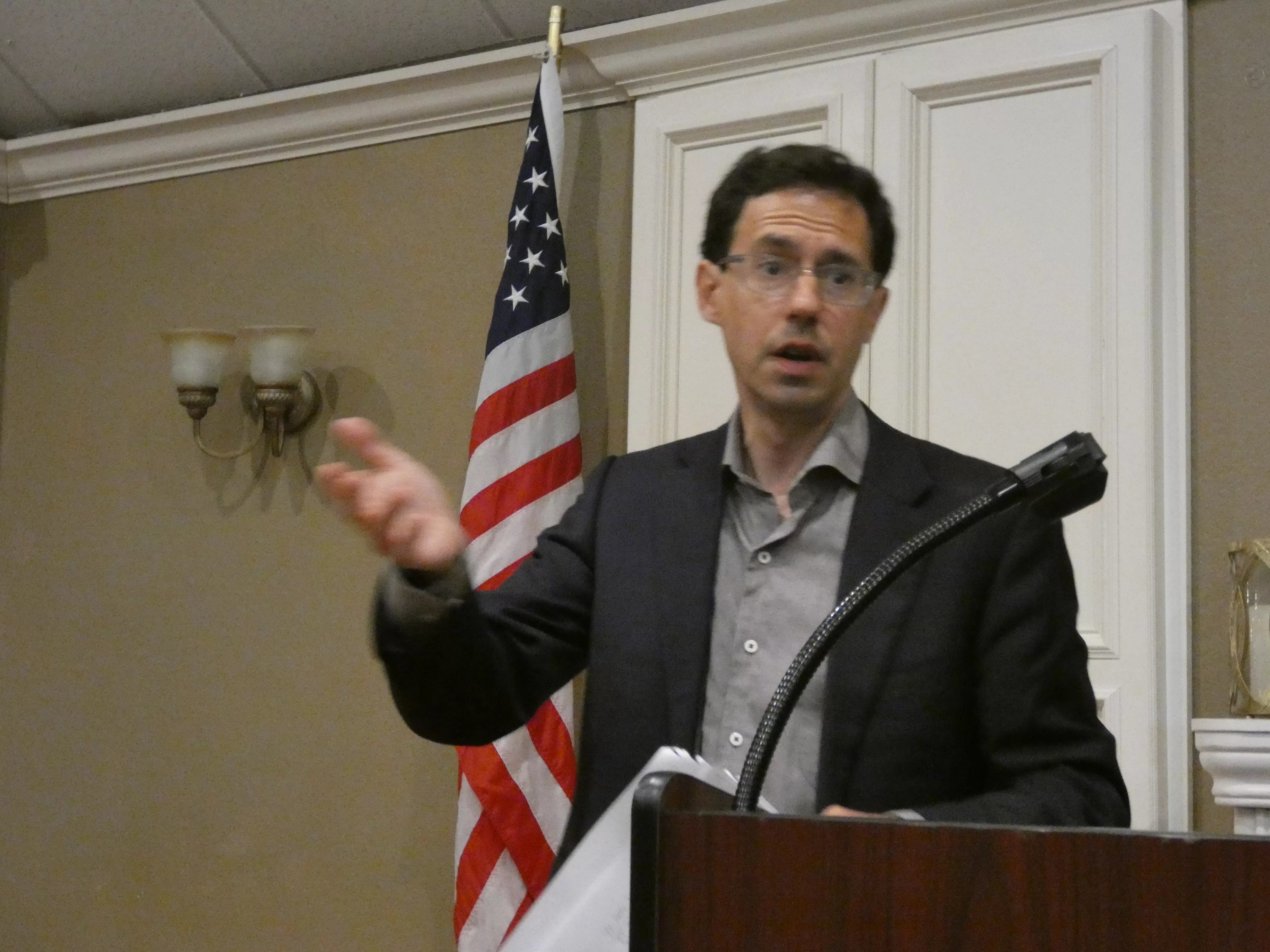
Today’s monthly luncheon of the Brownwood Area Chamber of Commerce heard about money and politics. The group was addressed by Glenn Hamer, President of the Texas Association of Business. Hamer’s remarks covered the strong performance of the Texas economy, and the workings of the Texas Legislature.
Hamer first talked about the economy. “I would make the argument that Texas’ economy is the healthiest, not just in the country, but on the planet. The strength of the Texas economy is awesome. If we were ranked as a country, we would be the eighth largest economy on the planet, $2.3 trillion.” Hamer said Texas has now surpassed the economy of Italy, and soon will surpass that of France.
In addition to total size, the Texas economy is said to be very business friendly. “For nineteen straight years we’ve been ranked the top state for business by CEO Magazine. And Site Selection Magazine has awarded Texas the Governor’s Cup for the most economic development projects for the last eleven years.”
“In terms of exports, we export more than any other state in the country. Texas exports more than California, New York, and North Carolina combined. We have been the top export state for twenty-one straight years,” said Hamer.
The strong Texas economy created some 650,000 new jobs last year, which attracted 1,100 new residents per day in 2022. But even with the pressures put on the state budget by the rapid population growth, the Texas economy posted a $33 billion state budget surplus, while California lost population and suffered a state budget deficit of about the same size, $33 billion.
Hamer gave part of the credit for the Texas economy to its state government. “I would argue this is the most functional democratic government on the planet. …We’re the only state in the country that has a bi-cameral Legislature where you have members of the minority party chairing committees. That is very unusual. No other state does that, and they certainly don’t do that in Washington D.C. The other thing that I think is really important in the committee process is that you have both parties working together on 98% of the bills constructively. It’s a real partnership.” As an example, Hamer said “The property tax cut bill passed with the support of almost every member of the Legislature, both parties. The parties really do work together when it comes to the big tax, regulatory, and infrastructure type of activities. The party labels matter a lot less here than they do in other places.”
Hamer said that the Texas Legislature just completed one of the best job-creating sessions in its history. First was the raising of the property tax Homestead Exemption to $100,000 from $40,000. That will cut individual property tax bills, putting more money back into the economy. Also the Legislature this year doubled the exemption for the Franchise Tax to $2.47 million. That will remove about 67,000 Texas businesses from having to pay the Franchise Tax.
The Texas Legislature also passed HB 5, the “Texas Jobs, Energy, Technology, and Innovation Act,” which provides a temporary ten-year tax abatement for large capital-intensive investments that allows Texas to compete with other states and countries to attract industries like Tesla, Texas Instruments, Samsung, energy, and hydrogen. “The goal here is to make sure that Texas, which has a rich and diverse economy, continues to lead in the technology of tomorrow.” Hamer pointed out that Texas is already the #1 state in oil, natural gas, hydrogen, and wind generation, and soon will be #1 in solar power also.
Hamer pointed out that with such a strong economy, Texas needs a strong and well-educated workforce. Texas currently has a workforce of more than 14,000,000 persons. “The Legislature passed a new community college proposal that’s going to add $650 million into our community colleges in exchange for a more skill-oriented, outcome-based approach.” In addition, the Legislature authorized $1.5 billion for broadband network expansion, $1.0 billion for water projects, $750 million for semi-conductors, $3 billion for Texas public universities, $350 for a Space Commission, $150 million for the Texas Enterprise Fund, $200 million for artificial intelligence and quantum computing, $150 million for movie production, plus more money for public education K-12, roads, and ports.
Finally, Hamer said part of the “secret sauce” of the strong Texas economy is that the state works with local Chambers of Commerce and Economic Development Corporations across the state. Other states try a top-down approach, where the state government tries to control economic development, but in Texas it is more of a collaborative effort between the state and local bodies.
If you would like more information about the Texas business environment, you can contact Glenn Hamer at the Texas Association of Business at 512-477-6721, or check their website: www.txbiz.org.